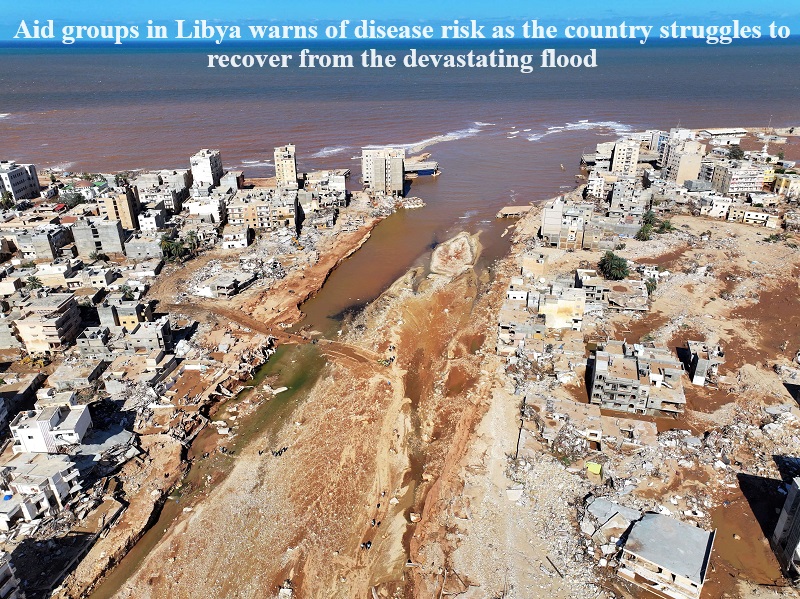
Aid organizations operating in Libya have issued warnings about the increasing risk of disease spread as the country grapples with the aftermath of the devastating flood in Derna. As reported by the AFP news agency on Saturday (September 16), groups like Islamic Relief and Doctors Without Borders (MSF) have cautioned that the coming period may witness the proliferation of diseases, as well as significant challenges in delivering aid to the most vulnerable.
The flood in Derna has claimed the lives of over 10,000 people, with thousands more still missing. Islamic Relief sounded the alarm on Saturday, highlighting the looming threat of a second humanitarian crisis. They cited a growing risk of waterborne diseases and shortages of essential resources like food, shelter, and medicine.
Salah Aboulgasem, the deputy director of partner development at Islamic Relief, emphasized the dire conditions faced by thousands who lack adequate shelter and food. Aboulgasem expressed concern that diseases could rapidly spread in these circumstances due to contaminated water systems.
MSF, on the other hand, revealed its plans to dispatch teams to the eastern region to assess water and sanitation conditions. Manoelle Carton, MSF’s medical coordinator in Derna, stressed the heightened risk of water-related diseases in the aftermath of such an event.
US diplomat Stephanie Williams, a former UN envoy to Libya, took to social media to call for global mobilization in support of ongoing aid efforts following the devastating flood. Williams cautioned against the predatory ruling class in the country using the pretext of sovereignty and “national ownership” to control aid processes for their own self-interest.
Meanwhile, Derna’s residents and rescue workers are grappling with the overwhelming task of managing the thousands of bodies either washing up on shores or decaying beneath rubble. The World Health Organization (WHO) had earlier urged Libyan authorities to cease burying flood victims in mass graves, as this could inflict long-term psychological distress on families and pose health risks if located near water sources.
According to a UN report, more than 1,000 individuals have been buried in mass graves since the flood devastated the city.

Post Your Comments